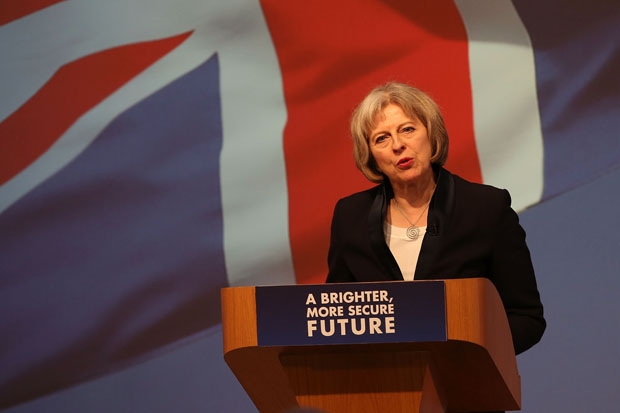I spent Sunday at the Sage Gateshead watching an epic performance of Götterdämmerung (I declare an interest, as a trustee of Opera North), so my head was full of it as I braced for more political backstabbing and immolation on Monday. That was very much the way it went as Andrea Leadsom fell, Theresa May rode her horse into the ring of flame that is the forthcoming Brexit negotiation, and Jeremy Corbyn, still clutching Labour’s tarnished ring, was dragged underwater by Angela Eagle, unlikeliest of Rhinemaidens.
Enough of the Wagner mash-up: what really caught my ear during the brief moment between Mrs May’s campaign launch and coronation was her attack on the business elite. This might be, as some commentators were quick to suggest, a bid for support from the mass of voters who are enraged by unpunished bankers, gold–plated executives, offshore tycoons, zero-hours contracts and lousy shareholder value — everything that’s happened in the corporate world in the past decade, in fact. Those gold-plated executives were, of course, Remainers almost to a man, so they also make a useful target for a pragmatist trying to ingratiate herself with hardline Leavers.
But let us give Mrs May’s sincerity the benefit of the doubt, and assume she really means it. Another senior Conservative (with a successful business track record) remarked to me recently that ‘something has gone wrong with capitalism’ — and that view is widely held by thinking people who would agree with Mrs May that the widening gap between executive and shopfloor pay is ‘irrational [and] unhealthy’, that companies should pay fair tax where they operate, that predatory takeovers are destructive, and that boards drawn from narrow circles of the like-minded fail to understand why the rest of the world thinks them greedy, heartless and too often incompetent.
So there are real issues to address. But the question is how. ‘Making a success of Brexit’ requires deregulation to allow business to thrive, not new rules that could make coalition business secretary Vince Cable’s interventionism look limp by comparison. Mrs May’s pledge to force boards to include worker representatives — a Germanic concept and a throwback to the ‘industrial democracy’ debate of 40 years ago — will, I predict, end up quietly shelved as conditions deteriorate in coming months.
Binding annual shareholder votes on senior executive remuneration, on the other hand, could give impetus to the patchy ‘shareholder spring’ that has so far had little effect in challenging sky-high awards at BP, WPP and elsewhere. And it would place responsibility where it needs to take root, with institutional shareholders whose block votes can actually overturn board decisions. The smart move, rather than confronting big business head-on, would be for Mrs May’s ministers to persuade pension funds by carrot or stick to regard corporate cultural reform and social awareness as a priority for their own enlightened self-interest.
Hunting for value
The FTSE250 is the index to watch. Its elder brother the FTSE100 has, rather remarkably, re-entered bull market territory, having risen 20 per cent from its February low: but that, as I observed last week, is largely about dollar-based investors buying global companies on the cheap. The broader set of 250 mid-cap companies offers a better indicator of sentiment among domestic UK share-pickers, and since the initial shock of the Brexit vote, when the index fell from 17,365 to around 15,000, it has climbed most of the way back. Buoyed by Mrs May’s victory because it removes one element of uncertainty — and not because she is seen as a champion of enterprise, which she isn’t — investors are hunting for value among stocks afflicted by early panic-selling.
Chief among these are property companies and housebuilders. Directors of two major housebuilding companies talked frankly to me in the days after the vote, and neither could see any immediate downturn (house purchases cancelled, for instance) that justified the fall in their shares. Among the biggest risers in their sector at the beginning of this week were Crest Nicholson and Galliford Try. My man who knows a thing or two about turbulent markets, Spectator Money’s ‘veteran investor’ Robin Andrews, also points to Persimmon, which issued a positive trading statement last week, yields more than 7 per cent, has very little debt, and is a big beneficiary of the government Help to Buy scheme that Mrs May looks most unlikely to curb, given her remarks on Monday about the issue of affordability of housing for the young.
What else does Andrews have his eye on? ‘Even UK banks are tempting if one takes the Governor’s recent soothing words at face value — and they look less vulnerable to collapsing bond markets than some European counterparts. For the risk-taker, Lloyds and Barclays look interesting.’ As for bigger beneficiaries from a weak pound, ‘Rolls-Royce at this level might be excellent long-term value as it reorganises under new management.’ And for ‘the ultimate calming investment’ during the troubles ahead, ‘Try some physical silver and gold.’
Under the lash
It’s always a pleasure to welcome new readers to the column. When I set out my rational case for voting Remain, I labelled myself ‘a roundhead’ but never spotted anyone else using that particular epithet in the debate: imagine my reaction to last week’s assault by celebrity diarist Elizabeth Hurley on ‘post-Brexit whingers’ for their ‘mean–spirited, round-headed’ response to the vote result. Moi? Joy! Like many a red-blooded English-man, I would have offered good money for a lashing from the actress-model famous for her safety-pinned Versace dress, but this one came free. Meanwhile, I’m keen to hear whether Love Island winners Nathan and Cara think central banks would be wise to launch more post-Brexit rounds of monetary stimulus.







Comments